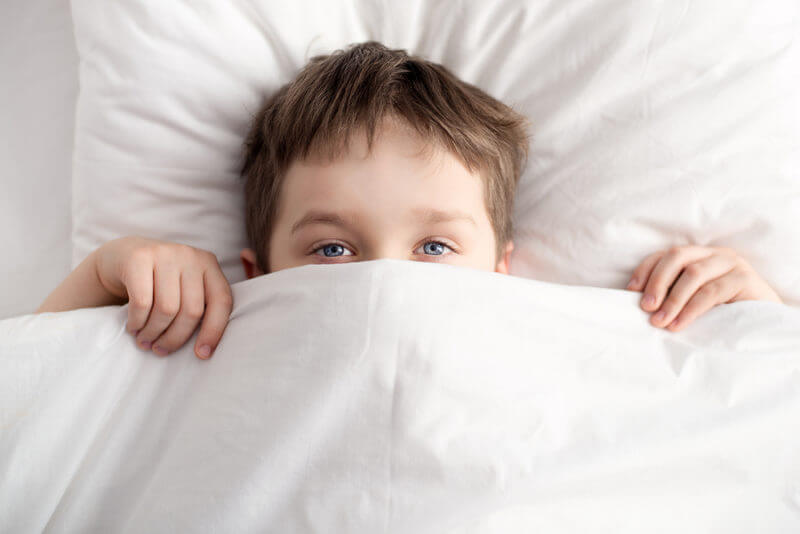
Sleep disorders in autism directly affect social skills: new study
Sleep disorders have long been a topic of discussion around those with autism. With an estimated 50 to 80 percent of children with ASD suffering from insomnia, sleep behaviour is finally getting the study it deserves. From blue light being linked to sleep disturbances in older children and teens who use tech devices, to the hypothesis that there may be a genetic link between circadian rhythms and autism, sleep – or lack thereof – has been making headlines in the past few years. Now a new study funded by the International Society for Autism Research on more than 2700 children with autism has found that the less a child sleeps, the more severe their autism symptoms will be.
Quality and duration of sleep has a direct affect on social behaviour
According to a summary by Spectrum News, the study found that insufficient sleep appears to take the biggest toll on a child’s ability to make friends. Every four-minute decrease in sleep duration is associated with a one-point increase in a score that reflects a child’s difficulty in forming peer relationships.
While we all can relate to the idea that we might feel less than sunny when we are sleep deprived, researchers found that children with autism who sleep unusually little have more severe social difficulties, repetitive behaviors, and lower IQ scores, than those who sleep a lot.
How do you get your child with autism to sleep?
It’s still unclear whether sleep problems are a cause or a consequence of severe autism features, or if the chain of causation runs in both directions. Sleep may be also affected by use of late night technology, behavior issues, and/or medications. What is clear from this study is that trying to help your child get more sleep could be a key factor in helping them socially as well. Below are some simple tips given by pediatrician Dr. Carrie Fitzsimons to help children with sleep disorders.
- Exercise. This is by far the single best way to get your child to sleep at night. There are simply too many benefits of regular exercise to list here, but among others, exercise stimulates the body and allows it to become properly tired.
- Spend at least twenty minutes per day outside, preferably close to the time you wake up. There is so much still unknown about why some people have bodies that don’t fall into natural circadian rhythms, but the advice from Dr. Fitzpatrick is to give your body a clear signal early on in the day to let it know it’s day time.
- Do not eat too close to bed time. For some people sleeping on a full stomach is natural, for others the act of digesting can give them energy and keep them awake. This is particularly true of sugary treats ( like nighttime dessert), and/or foods that cause sensitivities.
- Shut off technology at least an hour before bedtime. Even small amounts of light emitted from charging cords etc…can hinder sleep in some individuals. Remove all technology from the bedroom and create a dark space. If you need a nightlight, try to use one with a dim full spectrum bulb.
- Create a sleep routine, and stick to it. Getting a child into a sleep routine helps signal their body what to expect, even if they don’t respond naturally to sleep times.
- Figure out what works best for your child, and then make sure to provide that as consistently as possible. Some kids need to be tucked in a certain way, or need a certain kind of pyjamas. Some need heavy blankets to feel comfortable. Try a variety of options for your child until you figure out what helps, and then keep that as consistent as possible until your child seems like they are forming a consistent sleep routine.
For more resources on sleep training and sleep information please refer to:
Sleep Better! A Guide to Improving Sleep for Children with Special Needs – Revised Edition
Sleep Difficulties and Autism Spectrum Disorders: A Guide for Parents and Professionals
Sleep Well on the Autism Spectrum
Sleep Easy – A Mindfulness Guide to Getting a Good Night’s Sleep
Editorial Policy: Autism Awareness Centre believes that education is the key to success in assisting individuals who have autism and related disorders. Autism Awareness Centre’s mission is to ensure our extensive autism resource selection features the newest titles available in North America. Note that the information contained on this web site should not be used as a substitute for medical care and advice.
